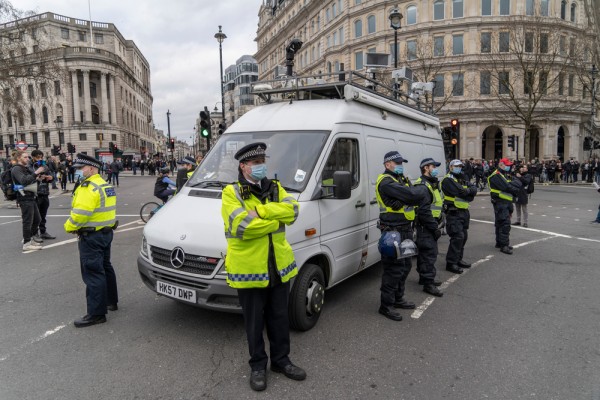Minister calls for facial recognition use by police to double
30/10/2023 | UK Government
Police in the UK are being encouraged to increase their use of facial recognition software to track down offenders. The Minister of State for Crime, Policing and Fire, Chris Philp, has written to Chief Constables and Police and Crime Commissioners (PCCs) urging them to double their use of retrospective facial recognition software over the next six months.
Concerning Retrospective Facial Recognition (RFR), Philip writes that, on retrieving a suspect's face from CCTV, mobile phones, dash cams or video doorbells, they should be checked against police image databases. Despite every force already using RFR to some extent, Philip urges forces to extend searches across the Police National Database (PND) rather than just local forces to maximise the chances of a match. He also calls for the routine use of RFR across the entire range of crimes. As such, Philip is targeting forces to increase the number of search requests using RFR to over 200,000 across England and Wales by May 2024 and is working with the National Police Chiefs' Council (NPCC) to monitor the progress.
On the use of Live Facial Recognition (LFR) technology to detect and deter crime in public areas with large crowds, Philip is encouraging police forces across England and Wales to follow the lead of the Metropolitan Police Service and South Wales Police in deploying the technology. The use of LFR has led to arrests that would have been impossible otherwise, and there have been no false alerts. The technology is now very accurate, but Philp emphasises that investment in equitability testing and trained officers carefully checking possible matches is crucial to maintaining public confidence. Recently, LFR was used during a football match at Arsenal v Tottenham, leading to the arrest of three people who would otherwise have gone undetected.
In a podcast for the Evening Standard, Rachael Burford, our Chief Political Correspondent, examines the controversy surrounding the MPS's use of live facial recognition technology after the faces of thousands of fans were scanned on their way to watch Arsenal v Tottenham last month.
In a statement contributing to the Evening Standard's article, Madeleine Stone, senior advocacy officer at Big Brother Watch, said, "Being forced to hand over our fingerprints to the police in order to watch a football match would never be considered acceptable. But for the first time, the Met have taken this approach to the faceprints of football supporters."
In related news, The Guardian reports on comments made by the outgoing Biometrics and Surveillance Camera Commissioner, Professor Fraser Sampson, who claims the UK is an "omni-surveillance" society where there isn't much not being watched by somebody. Professor Sampson expressed concerns regarding the regulatory framework, which he considered inconsistent, incomplete, and incoherent.
Sampson also revealed that police forces in England and Wales hold more than 3 million custody photographs of innocent people, which the high court ordered police forces to destroy in 2012. These images could be used for crowd surveillance by AI-assisted systems with little or no oversight.

What is this page?
You are reading a summary article on the Privacy Newsfeed, a free resource for DPOs and other professionals with privacy or data protection responsibilities helping them stay informed of industry news all in one place. The information here is a brief snippet relating to a single piece of original content or several articles about a common topic or thread. The main contributor is listed in the top left-hand corner, just beneath the article title.
The Privacy Newsfeed monitors over 300 global publications, of which more than 6,250 summary articles have been posted to the online archive dating back to the beginning of 2020. A weekly roundup is available by email every Friday.

